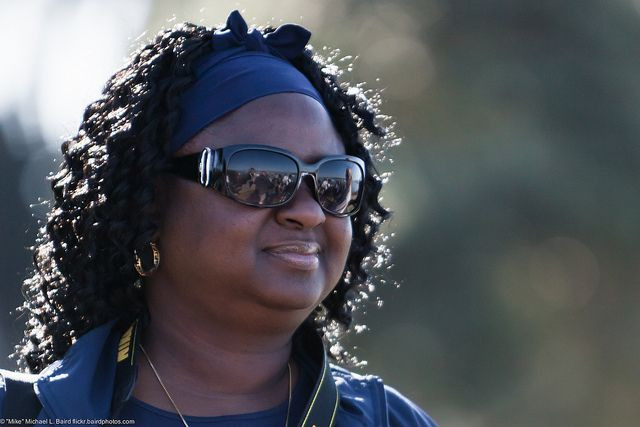Faulty Gene Commonly ID'd As Cause Of Breast Cancer In African American Women

Most African-American women with breast cancer carry an inherited genetic mutation that put them at risk of the disease, a new study shows, signifying the importance of screening breast cancer mutations in families who share genetic risk factors.
Researchers, who presented their findings on Monday at the 2013 Annual Meeting of the American Society of Clinical Oncology in Chicago, Ill., explained that African-American women were more likely to get early-onset breast cancer, even the "triple-negative" form that's more aggressive and harder to treat.
"Our study confirms the importance of screening for mutations in breast cancer susceptibility genes in all African-American breast cancer patients diagnosed by age 45, those with a family history of breast or ovarian cancer, or with triple-negative breast cancer before age 60," said Jane Churpek, the study's lead author and assistant professor of medicine at the University of Chicago Medicine. "This could identify at-risk family members in time for life-saving interventions and help prevent future cancers for the patients as well."
Researchers screened 249 women at the University of Chicago Medicine's Cancer Risk Clinic for all 18 known breast cancer risk genes using targeted genomic capture and next-generation sequencing, which are fast and inexpensive tests that look for multiple variants of genes.
They found that 56 of the women, or 22 percent, tested at the clinic inherited at least one mutation that increased their risk of developing the disease. Specifically, 26 women had a BRCA1 mutation, while another 20 had the BRCA2 mutation and 12 women inherited CHEK2, PALB2, ATM and PTEN genetic mutations.Two women had mutations in two different genes.
They also found that the African-American women had lower survival rates, a suspected cause being their lower access to screening and optimal care. However, greater proof is the higher inheritable mutation factor.
"In every population, but especially among those with greater genetic diversity [like patients with African heritage], we often detect changes in genes that may not yet have been studied clinically," Churpek said. "Some people question the utility of using gene panels like BROCA, as we don't always know how to counsel a patient without sufficient data on the clinical consequence of every variant found, but unless we start learning about them now we will never know."
Most of the patients, or two-thirds, were referred to the clinic for genetic testing because of family history of the disease, while, out of the 40 percent of patients with no family history of either breast or ovarian cancer, 12 percent had the susceptible mutations.
"What you don't know can hurt you," said Olufunmilayo Olopade, co-author and director of the Center for Clinical Cancer Genetics at the University of Chicago. "Women with known BRCA1, BRCA2 or other inherited mutations can lower their risk of dying from breast or ovarian cancer."
Women can remove their healthy ovaries when they're 40 to cut risks of both breast and ovarian cancer. They could also undergo surgical removal of the breasts or participate in breast-surveillance programs, which monitor high-risk cases to prevent and detect breast cancer.
Published by Medicaldaily.com



























